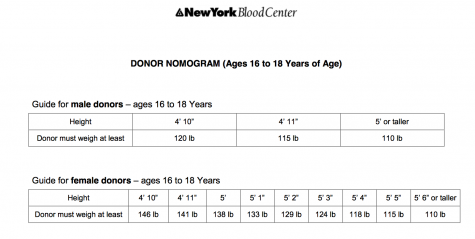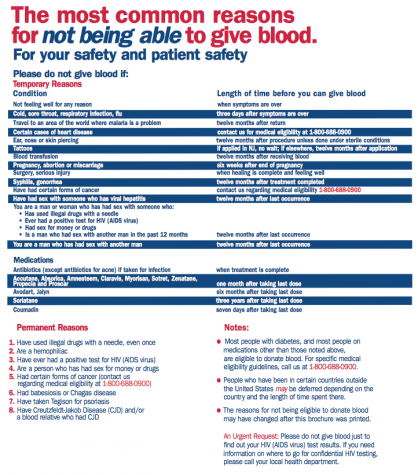Blood Drive

The New York Blood Center hosts the blood drives at the Carle Place High School
December 4, 2019
Everyone should make an attempt to donate blood at some point in life. When just one person donates blood, it can be separated into individual components to save multiple lives. Blood donors help for the needs of cancer patients, surgery patients, accident victims, burn victims, newborns, mothers delivering babies, AIDS patients, sickle cell anemia patients, and many more. If you’re scared of donating blood, just think of all the kids who have to have routinely transfusions. Close to 2,000 people need blood daily in New York alone. Only 2% of our local eligible population donates blood each year, and there is no substitute for human blood, so these people NEED your blood. 1 in 3 people will need a blood product in their lifetime, so you would want blood available if you ever need it.
Before you donate blood you should try to eat healthy, and drink plenty of water. It is also encouraged to eat salty foods 24 hours before you donate.
The actual process of giving blood usually takes takes 10-12 minutes. However, there is a process in the beginning to get you ready:
1: Check in with the people at the front desk
2: Get a barcode to sign in at the computers OR scan your blood donor ID card
3: Use a touch screen device/computer to answer questions about your health history
4: Your blood pressure, pulse, and temperature will be checked
5: If you are 16-18 years old, your height and weight will be checked
The main reason why people don’t donate blood is because they are scared of passing out after the process of giving blood. However, most people feel fine after. After you give blood, you should relax and sit down and have a snack. You can donate blood every 56 days.

February 25th is the next blood drive at the school during the whole school day hosted by the Key Club. Mark it in your calendars! Eligible 16 year olds can donate with parental consent. Therefore, some students of the sophomore class, junior class, and senior class can donate. Please check the weight and height requirements, and please also consider the top reasons for not being able to donate blood and try to avoid engaging in those activities. With every donation of blood, you have the potential to save lives.


